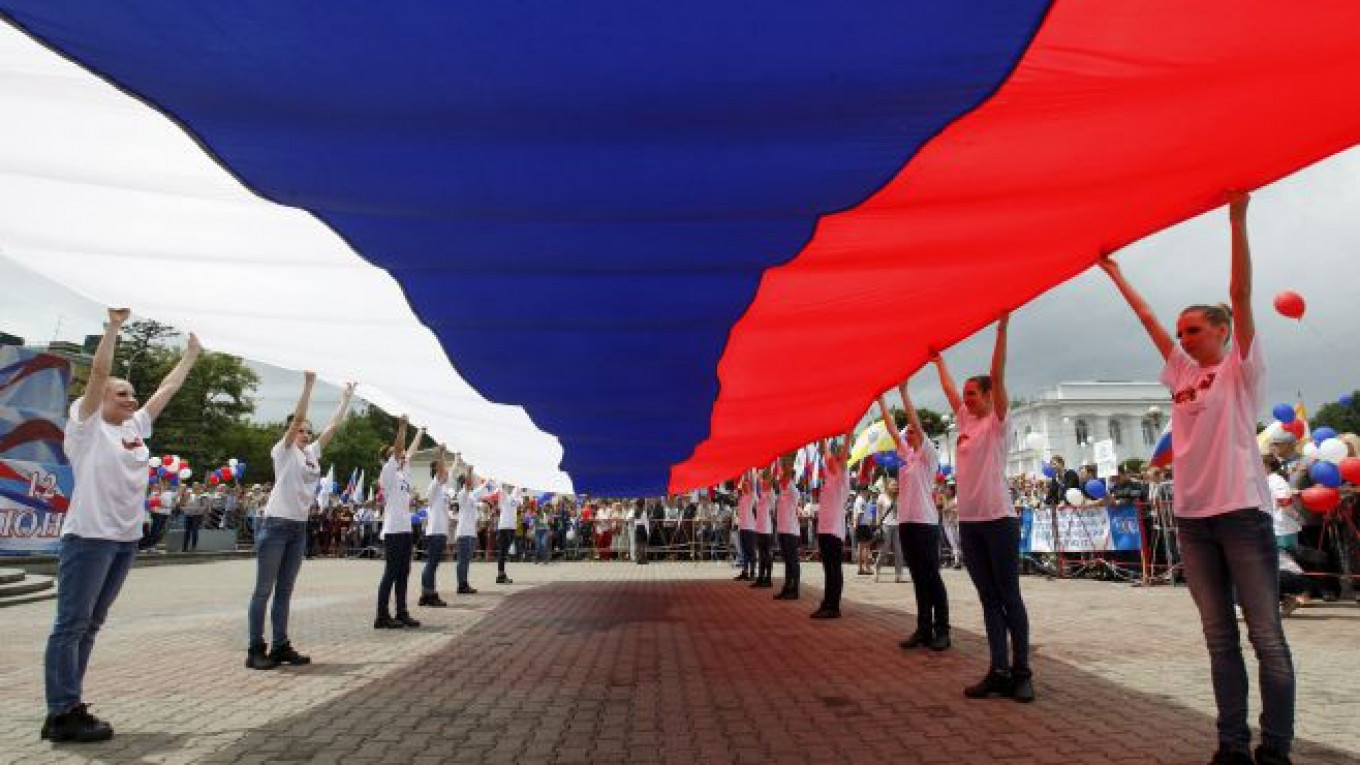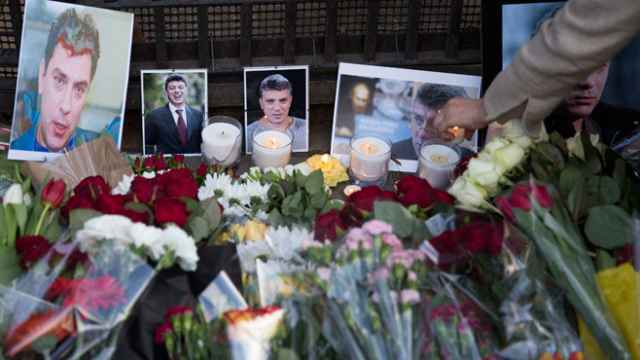Someone wants to take the World Cup away from Russia, or at the very least besmirch the event, tarnish it, sully it — that's how President Vladimir Putin interpreted the recent FIFA corruption scandal. Again, someone wants to spoil our party. On several occasions, in references to Russia's hosting of the Olympics, an offended Putin has mentioned not just criticism or doubts but a concerted campaign to discredit the event, waged from places "including the U.S."
The World Cup partly answers the question of what can replace Crimea. What can satisfy today's booming demand for Russian greatness? Nearly half of Russians, 47 percent, want their country to be a great power, respected by others. This nationwide demand for greatness emerged in the second half of Putin's lengthy reign as part of a new unspoken social contract between the authorities and the people.
The Soviet Union may have produced thousands of tanks and deployed SS-20 missiles on its European territory, but its ruling elders didn't chatter blithely about war. The Soviet propagandist would never have said, "We can turn the U.S. into a heap of radioactive ashes." He would've said: "There are so many nuclear weapons in the world that mankind can turn the earth into a heap of radioactive ashes."
It's not only that the Soviet leadership had a sense of responsibility and thus exercised caution. The country also suffered from intense war trauma. Soviet leaders promised their people that this would never happen again. There would be trade-offs: some shortages perhaps, and some restrictions. But no one would kill their loved ones and classmates anymore. Peace was part of the postwar, late Soviet-era social contract between the authorities and the people.
Even the localized Afghan war turned out to be a significant breach of that contract — hence its importance in understanding the Soviet collapse. The shortage of consumer goods and restrictions freedoms remained, but classmates and neighbors started coming home in coffins. Thus, the regime made hardship and lack of freedoms pointless.
The current unspoken social contract promises Russians greatness in exchange for freedom and prosperity. But greatness encompasses the possibility of war. It's hard to say where exactly this demand for greatness came from.
Greatness in a backward country is a very convenient thing for the authorities — especially if it's expressed in negative terms, rejecting the accomplishments of others rather than stressing one's own. What does Russia's greatness consist of? Of being different from the West. And it doesn't matter how imperfect we are; what matters is that we're not like them.
In terms of costs, it's quite a winning business model. According to the Levada Center poll, 40 percent of respondents consider their city or region to be in bad shape economically, and only 10 percent think it's in good shape. Nevertheless, the vast majority of Russians are certain that the country is heading in the right direction.
The danger of greatness lies not only in militarism but also in the difficulty of determining whether the greatness in question is genuine. Under the Soviet-era social contract offering "privations for peace," both privations and peace were verifiable realities: There was the Cold War, but no biag hot wars. In the first post-Soviet trade-offs — "old country for freedom" and "freedom for prosperity"— the second part of that deal, caveats notwithstanding, could also be empirically confirmed; the 1990s were definitely freer than the 1970s, and the 2000s were more prosperous than the 1990s.
But the second half of the current formula — "prosperity and freedom in exchange for greatness" — is very difficult to verify. And there's a high likelihood that the costs will be real but the gains imaginary.
Alexander Baunov is editor-in-chief of carnegie.ru. This is an abridged version of a comment that appeared on Carnegie's Eurasia Outlook blog.
A Message from The Moscow Times:
Dear readers,
We are facing unprecedented challenges. Russia's Prosecutor General's Office has designated The Moscow Times as an "undesirable" organization, criminalizing our work and putting our staff at risk of prosecution. This follows our earlier unjust labeling as a "foreign agent."
These actions are direct attempts to silence independent journalism in Russia. The authorities claim our work "discredits the decisions of the Russian leadership." We see things differently: we strive to provide accurate, unbiased reporting on Russia.
We, the journalists of The Moscow Times, refuse to be silenced. But to continue our work, we need your help.
Your support, no matter how small, makes a world of difference. If you can, please support us monthly starting from just $2. It's quick to set up, and every contribution makes a significant impact.
By supporting The Moscow Times, you're defending open, independent journalism in the face of repression. Thank you for standing with us.
Remind me later.








